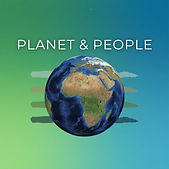Growing a Slow Food Family
- GROW together!

- Sep 12, 2020
- 3 min read
We were very glad to collaborate with the Slow Food Project in writing this article. Many thanks to Hannah Kaplan, Communications Manager at Slow Food in the UK for manking it possible. We're looking forward to an ongoing working relationship with this amazing organisation and the good work they do.

SLOW APPROACHES TO LEARNING ABOUT SLOW FOOD
When talking to your children about sustainable food and the environment, where does a parent or carer start? The answer can be found closer to home than you think, says Jess Carter, co-founder of GrowBox. Together with Bethia Stevenson-Paul, the small business seeks to instil in children a respect and appreciation of sustainable food through fun, hands-on activities right in their backyard.
I am blessed with the good fortune of having access to land and natural history on our doorstep. As an ecologist, I have been keen to share this with the younger generation and with those that don’t have such easy access to nature or ecological knowledge. I noticed that there were plenty of options in terms of forest schools, bush-skills and agricultural education. However, I struggled to find less structured, smaller-scale approaches to learning about the land. These would provide an opportunity for kids, parents and carers to just ‘be’ in a natural environment where they could learn about nature through hands-on, easily accessible activities.
Together with my business partner Bethia – a geography teacher and sustainability enthusiast – we created learning experiences that bring families together to focus on how the choices they make can have a subsequent impact on the planet. We pride ourselves on giving families the tools to become part of the change that we want to see in environmental responsibility. We want to impart knowledge and provide activities and tools that bring families and local communities together to tackle the climate crisis. GROWbox encourages children to engage with people and the planet through fun activities that encourage nature and sustainability, mental and physical wellbeing, imagination and community.
It’s great to see the breakthrough in peoples’ understanding when they learn more about seasonality and the types of foods that can be grown in the UK. For example, we don’t need to buy mange tout from Kenya, we can grow them pretty easily right here in the UK! As we sense seasonal changes, we grow closer to the land and become more aware of what it takes to produce food, encouraging us to live intentionally.
Planting seeds is a good way of opening the conversation. You don’t need a garden, you can plant a whole lot on a patio or a window box. The transformation of a seed into a plant that we can eat is a magical, thought-provoking process! Simply encouraging children to think about where food comes from is so important – not just where food is grown but also how they access this food. Can we buy from somewhere other than a supermarket? Do we go past a shop like this on our usual routes? Would it be easier and even cheaper to shop like this instead? What changes could we make and what can we grow ourselves?
All of these questions encourage resourcefulness, planning and widen a child’s understandings of the food supply chain as they make the journey to become more sustainable shoppers.

All in a simple egg, he’s understands the complexity of the food supply chain and farming without even realising it! The magic of experience and language, even at the tender early stages of life are powerful. Understanding and education serve as the foundation for children as they learn to become mindful and resilient members of society, equipped to tackle the challenges that they will need to face in future – the climate crisis for one!
Teaching kids is also about teaching parents and carers. Kids learn from what we do, how we live and what we give our time to. Our consumerist society has gotten out of hand in recent years. We have become accustomed to a world in which the pressure to be “successful” translates into a fast-paced, “clicking without thinking” mindset. Everywhere we look, there seems to be a “crisis” on the horizon which can be anxiety-inducing and unhelpful. Breaking down norms and asking people to slow down enables space to make considered and responsible choices.
The reality is that there are no quick fixes. We need slow fixes in the long term which can be a challenge as we ask people to adjust their pace of life. Together though, with the help of tools that encourage different approaches and a broader understanding, I believe we can do it.
GROWBox is an educational resource subscription box providing fun, personalised learning resources that celebrate nature and sustainability. Find out more about GROWbox here, Facebook group, and on Instagram.
You can learn more about Slow Food in the UK’s project, Slow Food Kids here. Here is the link to the full article.
.jpg)






Hello nice postt